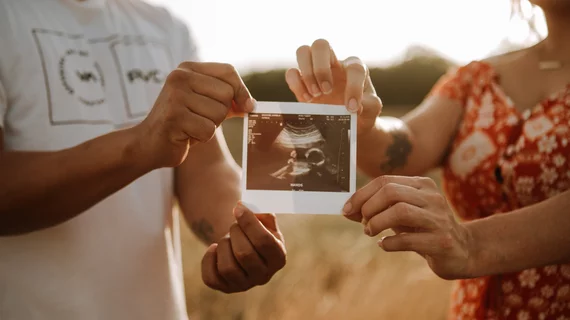New FDA-cleared algorithm could improve fetal anomaly detection on ultrasound
A newly FDA-cleared algorithm could significantly improve the detection of fetal abnormalities on ultrasound imaging.
On Monday, Sonio—developer of cloud-based ultrasound reporting software—announced the clearance of its latest artificial intelligence module, Sonio Suspect. The new module is said to drastically enhance the identification and characterization of fetal anomalies on routine ultrasound.
Prior clinical studies have highlighted significant shortcomings in prenatal diagnostics, with some indicating that as many as 51% of fetal anomalies are missed on ultrasound. These mistakes happen even when providers have quality imaging to review. Sonia sought to address some of these gaps by harnessing the power of AI, which can spot minuscule changes in anatomy that may not be visible to the human eye.
The module helps automate the detection of eight common fetal anomalies using seven routine ultrasound views of the heart, brain and abdomen. According to data from 47 clinical sites where the algorithm was tested, its use improves reader performance by as much as 22%. It also helps spot abnormalities sooner, detecting signs of developmental variances as early as 11 weeks gestation. These improvements were observed in a diverse group of users with varying experience levels.
Sonio’s reporting platform is vendor neutral and can be integrated into any ultrasound equipment, EHR and image archiving system. It is the company’s hope that the clearance of their latest algorithm will enable providers to spot fetal malformations sooner, paving the way for earlier treatment and improved outcomes.
“By combining real-time AI quality control with AI-driven anomaly detection, Sonio supports ultrasound providers at every step of the patient pathway, from exhaustive documentation to accurate diagnosis,” Sonio CEO Cécile Brosset said in the announcement. “Our technology is designed to help healthcare providers detect issues early and streamline processes, ultimately improving the care every patient receives.”
Learn more about Sonio’s prenatal AI offerings, click here.

